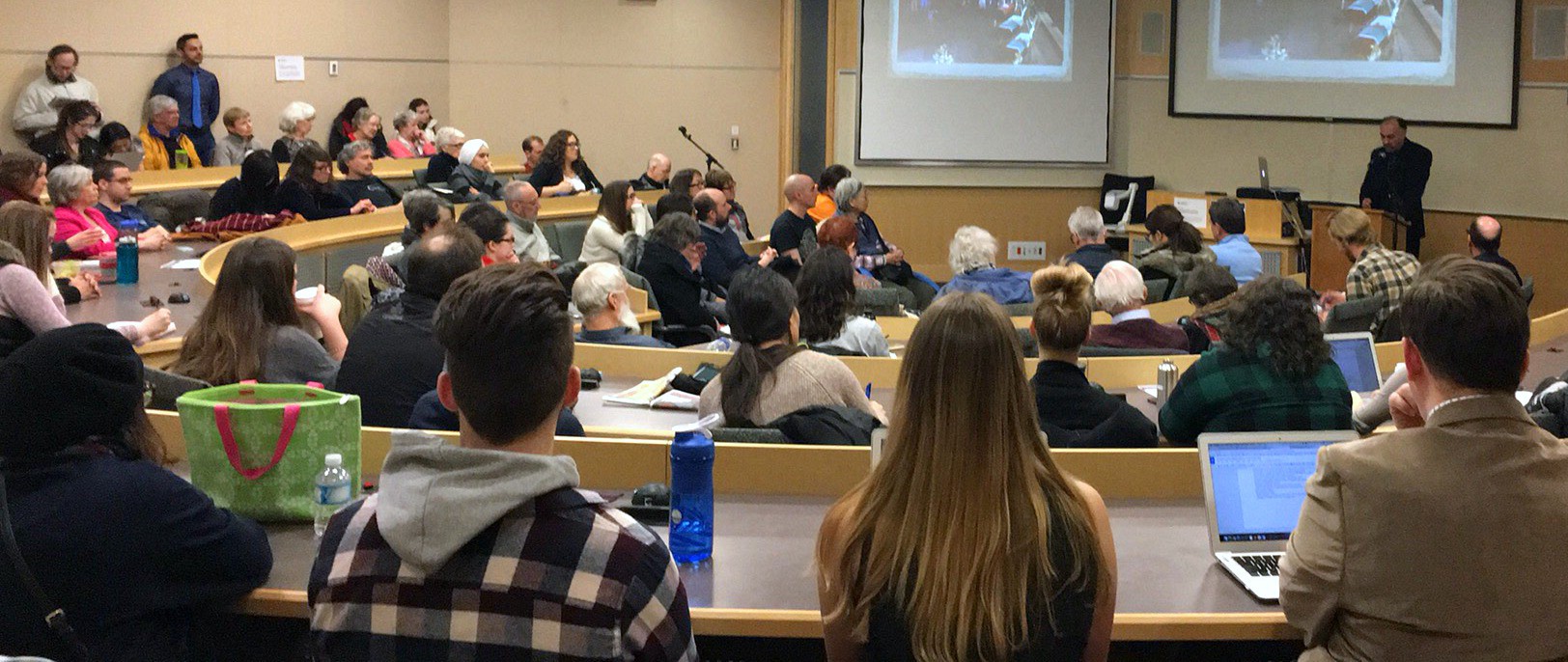
“I wish you were all here for a better reason,” Mojtaba Mahdavi said, addressing a full crowd at his International Week presentation on February 3. Mahdavi’s lecture, Muslims and the Middle East in a Post-Trump Era, didn’t require any further introduction. His audience was keenly aware of the timely subject.
The University of Alberta’s 2017 I-Week covered everything from conflict zones and water accessibility to sustainability and colonialism. Yet Mahdavi’s lecture, shaped by Trump’s contentious travel ban and the tragic Quebec attack in the preceding week, amassed particular attention. When he signed up for I-Week back in the fall, he could not have anticipated such a pre-text to his presentation. “I was expecting something to happen,” he said, “but I didn’t know how fast it would be. It’s quite shocking.”
Mahdavi is an associate professor of political science and the ECMC Chair in Islamic Studies. His research focuses on social movements and democratization in the Muslim world, as well as Islamic political thought, among other subjects. Lately this has included “Trumpism,” a growing topic of discussion for the campus community, especially as policies like the travel ban have had immediate local impact.
For Mahdavi, Trumpism is “the manifestation of a global trend” — a phenomenon of increasing incidences of right-wing populism, hyper-nationalism, xenophobia, and white supremacy in countries and political landscapes around the world. In the U.S., the political rhetoric and decision-making of the past few weeks has created a counter-productive environment that punishes Americans and fuels extremism, Islamophobia, and violence. Recent policies, like the travel ban, are no longer about safety and security — rather, Mahdavi suggested, “they are about scapegoating.” Given pre-existing conditions of Islamophobia, he explained that Muslims have become an easy — and disadvantaged — target.
As an identifiably global trend — not an American anomaly — Mahdavi cautioned that no country or government is immune to these discourses. What does that mean in Canada? “We have to be extra, extra cautious about the words and actions of politicians everywhere, including Canada,” he said. “We have to resist any signs of this right-wing xenophobia and Islamophobia — or any kind of new xenophobia — in the Canadian context. Canada is and should be proud of multiculturalism. We should celebrate diversity in a very meaningful way.” It’s the only way to sustain a healthy democracy, he argued.
To Jingnie Xiao, a current U of A student, Mahdavi’s lecture seemed poignant, particularly following the attack in Quebec. Xiao attended many I-Week events, including a panel discussion on the peace process in Columbia and the keynote talk by David Korten. Despite her participation, she remains concerned about students and young people accessing information on current global events. “We rely so heavily [on getting] information through social media,” said Xiao, who felt that Mahdavi’s talk provided a rational and informative report amid the often chaotic surge of media updates.
Mahdavi believes that universities have an important role to play in the unfolding climate of Trumpism. “We should definitely critically evaluate literature and discourses which feed into this sort xenophobia and islamophobia,” he said, noting that universities are a place for free, open, and critical discussion.
Though I-Week ended February 5, the question of “Trumpism” and its repercussions will likely animate discussions across the U of A for months to come.